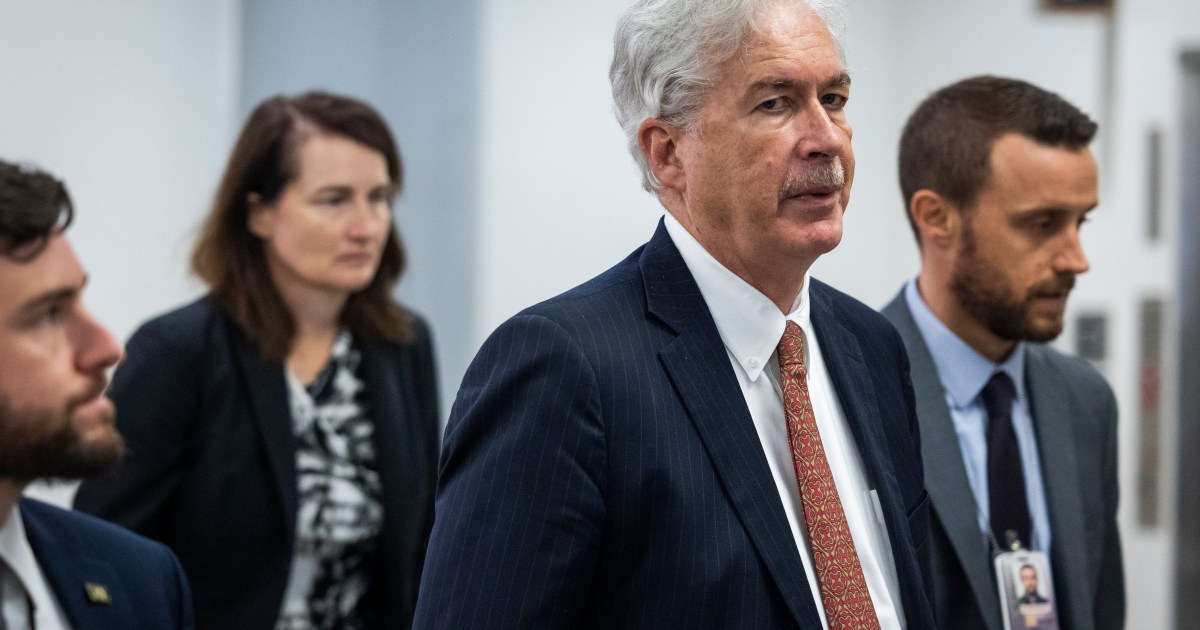The Director of the Central Intelligence Agency (CIA), William Burns, begins today, Tuesday, an official visit to Israel, during which he will discuss coordination of positions between Tel Aviv and Washington regarding the Vienna talks aimed at reviving the nuclear agreement between Iran and the major powers.
Burns' visit lasts 3 days, during which he will meet with Prime Minister Naftali Bennett and Israeli President Isaac Herzog.
This is the first visit of the head of the US Central Intelligence Agency to Israel since he took office last March, and the visit comes amid expectations that the Vienna talks, which have been ongoing since last April, will resume within a few weeks.
Tel Aviv opposes Washington's return to the nuclear agreement, and considers that this will free Iran's hand, and former Israeli Prime Minister Benjamin Netanyahu had threatened that Israel would move alone against Iran, claiming that it was close to producing a nuclear weapon.
The Vienna talks were suspended after the end of the sixth round of them last June, and Washington says it is waiting for the newly elected Iranian President, Ebrahim Raisi, to form his team that will negotiate the revival of the 2015 nuclear deal.
Hours before the start of William Burns' visit, Vice President Kamala Harris reiterated the United States' commitment to Israel's security.
In a phone call with the new Israeli President Isaac Herzog, Harris expressed her support for the continued normalization of relations between Israel and its neighbors.
The White House stated that the Vice President affirmed the United States' commitment to a two-state solution, promoting freedom, security, dignity, and opportunity for both the Israeli and Palestinian peoples.
American options
On Monday, Bloomberg reported, citing well-informed sources, that Washington is reviewing its options regarding the nuclear deal with Iran, and that it is ready for alternatives that help reach an agreement.
The site added that the US position came after months of negotiations and the failure of the parties to reach an agreement, and said that Washington is ready for a limited temporary relief of sanctions in exchange for Iran freezing its "most provocative" actions in the field of nuclear proliferation.
For its part, the Iranian Foreign Ministry announced on Monday that Tehran will not abandon the Vienna negotiations, and will not accept anything less than the full implementation of the nuclear agreement.
In turn, the Russian delegate to international organizations in Vienna expressed his hope for the resumption of nuclear negotiations in the coming weeks after the Iranians arranged their negotiating team.
A European official had said that the talks might resume at the beginning of next September, noting that Iran was ready to continue the talks that have been suspended for weeks.
In his first phone call with his French counterpart, Emmanuel Macron, Raisi stressed on Monday that the state of the nuclear agreement was caused by European countries' failure to abide by their commitments and the increasing US sanctions on his country.
For his part, Macron affirmed his country's commitment to search for a solution to the issue of the nuclear agreement and to contribute more in this regard.
Washington and Tehran say they are ready for a mutual return to the nuclear agreement - which the administration of former President Donald Trump withdrew from in 2018 - but the two sides differ on a number of issues, including Iran's weapons programs and Tehran's role in the region.

